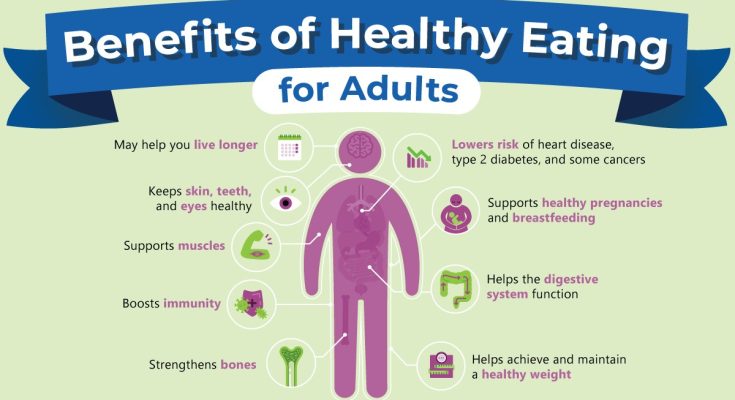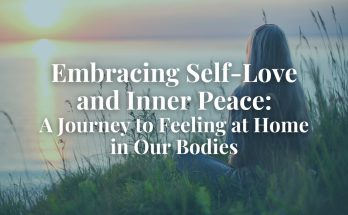Health advice has never been more abundant or more overwhelming. Every day, new headlines proclaim the benefits of one diet, exercise routine, or wellness hack, only to be contradicted by another study the following week. In this flood of information, it is easy to feel that achieving health is about following the latest trend or striving for a one-size-fits-all solution. The truth is that finding the right health balance is deeply personal. What works for one person may not work for another, and true wellness comes from aligning habits with your own body, lifestyle, and values rather than trying to copy someone else’s formula.
One of the first steps toward finding balance is redefining what health actually means. For some, it may be about maintaining high energy throughout the workday, while for others it may focus on reducing stress, supporting long-term mobility, or simply feeling more comfortable in their own skin. Without a clear understanding of your priorities, it becomes easy to chase external markers—such as weight or performance metrics—that don’t necessarily align with what you value most. Reflecting on what health looks like for you, rather than adopting society’s broad definitions, creates a foundation that feels both authentic and sustainable.
Nutrition is a perfect example of where balance differs from person to person. While general principles like eating more whole foods and fewer processed ones apply broadly, the details vary. Some thrive on plant-based diets, while others feel their best with moderate amounts of lean meats and dairy. The same is true for carbohydrate tolerance, caffeine intake, or even how often meals are eaten. The key is noticing how your body responds, rather than rigidly adhering to a popular diet plan. Food should fuel your life, not control it, and finding the right rhythm means experimenting with balance until it supports both energy and enjoyment.
Exercise follows the same principle. There is no single “best” workout; the right balance depends on personal goals, physical condition, and preferences. For someone with a demanding job, shorter, more intense workouts may provide the needed results without overcommitting time. For another, long walks or yoga may offer not only physical benefits but also much-needed mental clarity. The most effective form of exercise is the one that you can sustain, because consistency matters more than intensity. When physical activity fits naturally into your routine and feels enjoyable, it ceases to be a chore and instead becomes a source of strength and renewal.
Stress management is another area where health balance requires personalization. Some people find release through meditation or journaling, while others may recharge best through social connection, creative outlets, or simply spending time outdoors. The important thing is identifying strategies that work for your personality and lifestyle. Trying to force relaxation through methods that feel unnatural often leads to frustration rather than calm. Balance here is about creating practices that help you reset, whether that means ten minutes of quiet reflection or an evening spent laughing with friends.
Sleep, often neglected in discussions of balance, may be the most universally important element of wellness. Yet even here, the right amount and timing vary between individuals. Some naturally feel rested with seven hours, while others function best with closer to nine. Establishing a routine that prioritizes restorative rest while respecting your own rhythms is essential. Sleep impacts everything from mood and memory to metabolism and immune function, making it a non-negotiable part of any balanced lifestyle.
One of the biggest challenges in achieving health balance is resisting extremes. Many people fall into cycles of overexertion followed by burnout, whether through unsustainable diets, excessive workouts, or overcommitted schedules. These all-or-nothing approaches may deliver short-term results but rarely support long-term well-being. Balance, by contrast, is about moderation and adaptability. It means making space for both discipline and flexibility, allowing yourself to enjoy indulgences without guilt while also returning to healthier routines without resistance.
Listening to your body is the most reliable guide in this process. Signals like persistent fatigue, recurring injuries, digestive discomfort, or irritability are often indicators that something is off-balance. Instead of ignoring them or pushing harder, these signs should be treated as valuable feedback. Just as businesses rely on data to adjust strategies, individuals can use their own physical and emotional cues to fine-tune their health practices. Over time, this responsive approach builds trust with yourself, replacing the need for rigid external rules with a more intuitive sense of what works.
It is also important to acknowledge that balance is not static. Life circumstances shift—whether through career changes, family responsibilities, aging, or health conditions—and what felt balanced five years ago may not work today. Maintaining health over the long term means regularly reevaluating your needs and making adjustments. Flexibility is a form of resilience, and being willing to adapt prevents the frustration that comes from clinging to outdated routines.
Ultimately, finding the right health balance is about creating a lifestyle that supports vitality without becoming a source of stress in itself. It means aligning daily habits with your own needs and goals, rather than measuring yourself against others. When nutrition, movement, rest, and stress management come together in a way that feels natural, health stops being something you chase and becomes something you live. That balance looks different for everyone, but the principle is the same: a sustainable approach rooted in awareness, moderation, and self-respect will always be more powerful than chasing quick fixes or extremes. In this way, wellness becomes not an endpoint but a way of moving through life with energy, clarity, and resilience.



